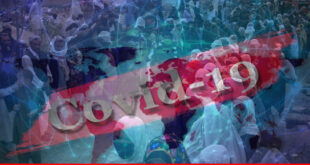Though, many generation have passed away Pakistan continue to suffer from the legacy of British Raj, which never encouraged people from their colonies to get education. It was taken very conveniently as an extension of cast system followed in Indian subcontinent for centuries. Ideally, the education system in Pakistan should have changed after independence but it seems British Raj has been replaced by the local feudal system. One factor between the British Raj and feudal system is that these don’t wish to change mindset of their subservient. Both want the poor to remain dependent on the stipend paid by them and never allow them the move to the next orbit or get physical and economic freedom.
The first thing which education inculcates in an individual is the ability to distinguish between right and wrong. Let one point be kept in mind that wrong in one religion or society is also wrong in another society. No rebellion or society allows violation of norms, which often become laws or part of constitution. That is the reason in autocratic culture where masses are not imparted education. The logic is simple, if masses learn to distinguish between good and bad they start questioning acts of their rulers. In any auto critic system, a few elites controlling the system are considered above law, enjoy immunity and in no way accountable.
The basic education in Pakistan is divided into three distinct sub-systems: 1) for the masses, 2) for the high income groups and 3) for the elites. Despite recognition of the fact that education is the basic right of every individual, annual budget expenditure has remained paltry. This provides opportunity to those who have money to establish private schools and impart quality education but at colossal cost. The rich have created elite schools, colleges and universities and restrict entry of ‘being ruled’ by charging fabulous fees. Since rulers are part of elites of the society, there is no restriction on fixation of monthly fees and use of imported books. The result is that when it comes to employment graduates from elite schools/colleges/universities get the job and mediocre and those getting lower percentage waste their time in search of a decent job and ultimately compromise on whatever is offered.
The students coming from different teaching systems also succeed in different types of higher education institutions. If one picks up the rating of different business schools and universities these range from 1 to 10 of the scale. Graduates are also categorized on the basis of institutions rather than their own acumen and knowledge. The first salary offered to MBAs from different business schools ranges from Rs30,000 to Rs75,000 primarily due to the brand name written on their degrees, rather than their IQ/EQ or overall understanding of the job for which they are hired.
The situation is more or less the same at other universities. Private universities are normally considered better because of their closer focus on studies. In public universities the quality of teaching is low, mainly because of the inferior quality of faculty. However, it is often forgotten that the best universities enroll the cream and public universities often get the rotten stuff. Therefore, if the fewer superior quality draughts are produced, it is but natural. The difference between the qualities of graduates continues to haunt them even at work places.
One of the words often talked about is developing entrepreneurs in Pakistan. It has become cliché and topic of ‘drawing room’ discussion. At business school the focus is on preparing the job seekers rather than job providers. The graduates are taught to become executives, who can follow the instructions of their superiors. At no stage those who have independent and out of book thinking are liked. This is mainly because the prime objective of paid executive is to do the job according to the instructions of his superiors without using his/her brain.
Change of mindset
This is contrary to the prime objective of education is to change the mindset or ways of doing the daily chores. In the past a lot of work was done manually, but now computers are used to do the same. This has opened new opportunities for those having skills in operating computers. At corporate level there is constant to enter into paperless environment. However, the disparity in knowledge and skills often lead to extensive use of more paper. At times it is also felt that that the difference in mindset of old and young generation results in certain conflicts, as the old consider use of computer entering into their exclusive domain.
In Pakistan three of the stock exchanges and the only commodity exchange, Pakistan Mercantile Exchange has technology driven trading platform. Initially there was resistance against deployment of technology and it was fears that deployment of technology could cause serious security problems. However, two points are worth noting that local people have developed operating software with adequate ‘security walls’.
Gone are the days when Pakistanis has to go to the US or other developed countries for open heart surgery. Now dozens of such operations are performed on daily basis. Some critics may say that most of these surgeons have acquired specialized knowledge and experience outside Pakistan. However, this would have not been possible unless they had received quality education in Pakistan.
Some critics say that the ‘bright minds’ leave Pakistan and consider ‘brain drain’ a serious threat. However, they often forget that one of Pakistan’s most precious assets is ‘human resource’ and brain drain should not be considered a threat. Pakistan gets over one billion dollars remittance monthly, which mainly comprises of money being sent by overseas Pakistanis to their families. This on one hand help in inflow of huge foreign exchange, and on the other hand improved purchasing power of their family members who can afford to spend more money on education.
 PAGE Blog Business Weekly Magazine
PAGE Blog Business Weekly Magazine

